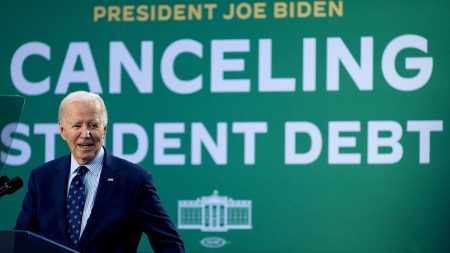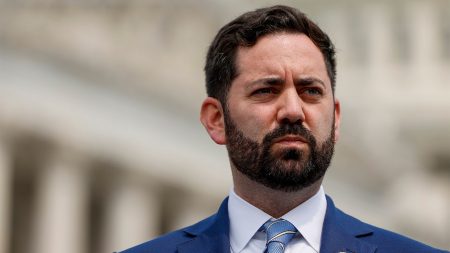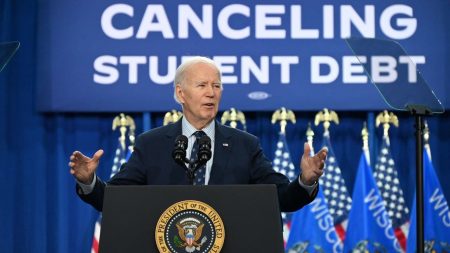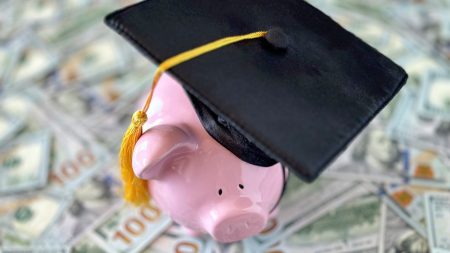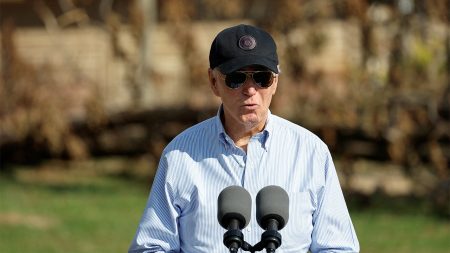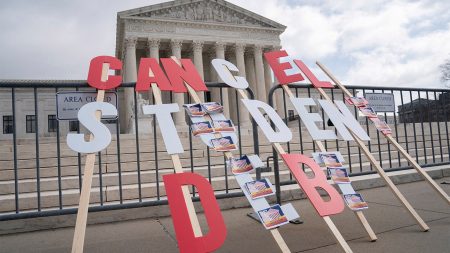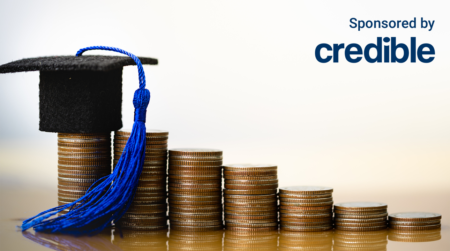
President Joe Biden’s administration announced Friday it would forgive $39 billion in student debt for more than 800,000 borrowers.
The Department of Education said these efforts are part of fixes to income-driven repayment (IDR) plans. Under these plans, borrowers could have their remaining loan balances forgiven after making payments for 20 or 25 years, depending on factors like the type of IDR plan and loan type.
However, certain payments that should have put some borrowers on a closer path to forgiveness were not accounted for, according to the administration.
“For far too long, borrowers fell through the cracks of a broken system that failed to keep accurate track of their progress towards forgiveness,” U.S. Secretary of Education Miguel Cardona said in a statement.
Borrowers who are impacted by the recent loan forgiveness include those with Direct Loans, Federal Family Education Loans such as Parent PLUS loans of either type, who have met forgiveness thresholds under a qualifying IDR plan for any of the following periods, the Department of Education said:
- Any month in which a borrower was in repayment status, regardless of whether payments were partial or late, the type of loan, or the repayment plan.
- Any period in which a borrower spent 12 or more consecutive months in forbearance.
- Any month in forbearance for borrowers who spent 36 or more cumulative months in forbearance
- Any month spent in deferment (except for in-school deferment) prior to 2013
- Any month spent in economic hardship or military deferments on or after January 1, 2013
“Inaccurate payment counts have resulted in borrowers losing hard-earned progress toward loan forgiveness,” the Department of Education said. “This action also addresses concerns about practices by loan servicers that put borrowers into forbearance in violation of Department rules. The Department previously began discharging loans for borrowers who reached forgiveness for Public Service Loan Forgiveness (PSLF) through these changes.”
If you have private student loans, you won’t benefit from any federal loan forgiveness. However, you could consider refinancing your loans for a lower interest rate to reduce your monthly payments. Visit Credible to get your personalized rate, without affecting your credit score.
STUDENT LOAN DEFAULTS COULD RISE TO HISTORIC HIGH WITHOUT DEBT RELIEF: EDUCATION DEPARTMENT
Biden announces new student loan forgiveness plans
After the Supreme Court struck down President Biden’s plans for widespread student loan forgiveness, the White House announced new initiatives aimed at bringing relief to student loan borrowers.
These include a new IDR plan called the Saving on a Valuable Education (SAVE) plan. This could lower borrowers’ monthly payments to zero dollars, reduce monthly payments in half and save those who make payments at least $1,000 a year, the White House said in a statement. Borrowers can enroll in SAVE this summer before the repayment pause ends.
In addition, the Education Department is launching a 12-month “on-ramp” program running from Oct. 1, 2023 to Sep. 30, 2024.
“Financially vulnerable borrowers who miss monthly payments during this period are not considered delinquent, reported to credit bureaus, placed in default or referred to debt collection agencies,” the White House said.
These efforts are part of the administration’s wide-encompassing plans to bring some kind of student loan relief to borrowers.
“My Administration has worked hard to secure the largest increases to Pell Grants in a decade, fixed broken loan programs such as Public Service Loan Forgiveness, and created a new income-driven repayment plan that will cut undergraduate loan payments in half and bring monthly payments to zero for low-income borrowers,” Biden said in a statement. “And, when the Supreme Court made the wrong decision, I immediately announced a new plan to open an alternative path to relief for as many borrowers as possible, as soon as possible.”
If you hold private student loans, you won’t be able to enroll in a federal income-driven repayment plan, but you could refinance your loans to a lower rate. Visit Credible to compare options from different lenders.
BIDEN ASKS STUDENT LOAN COMPANIES TO PREPARE FOR END TO PAYMENT PAUSE
Is student loan forgiveness still possible?
The president announced he would continue to pursue widespread student loan forgiveness after his plan was struck down by the Supreme Court. His initial plan was designed to forgive up to $10,000 for low-to-middle income borrowers and up to $20,000 for these borrowers who also received Pell Grants.
But SCOTUS ruled the president overstepped his powers. After weighing two lawsuits against the initiative, the high court concluded that Biden couldn’t justify his plans under the Higher Education Relief Opportunities for Students (HEROES) Act of 2003, which allows the Secretary of Education to “waive or modify” regulations around student-loan programs.
Chief Justice John Roberts wrote in the Supreme Court’s opinion that Biden’s plan “created a novel and fundamentally different loan forgiveness program.”
However, the White House announced it will keep working toward student loan forgiveness under the Higher Education Act of 1965. HEA contains a provision that allows the Secretary of Education to compromise, waive or release federal student loans.
If you have private student loans, you could consider refinancing your loans to a lower rate to reduce your monthly payments. Visit Credible to speak with a student loan expert and get your questions answered.
SUPREME COURT STRIKES DOWN BIDEN’S STUDENT LOAN FORGIVENESS PLAN – WHAT’S NEXT?
Have a finance-related question, but don’t know who to ask? Email The Credible Money Expert at [email protected] and your question might be answered by Credible in our Money Expert column.
Read the full article here



